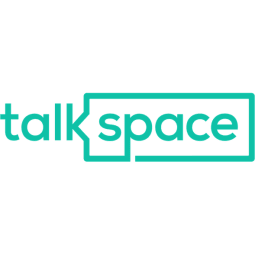With social media, bullying, and all the typical physical and emotional changes teenagers go through, it’s not surprising that approximately 14% of adolescents between the ages of 10 and 19 experience mental health conditions2. What is shocking is that one in three adolescents are not receiving the mental health treatment they need, according to Mental Health America. On the bright side, with modern times also come a few modern solutions. Online therapy services are making mental health more approachable for today’s teenagers, who are already very accustomed to virtual platforms. Unfortunately, finding the right therapist for your teen isn’t always a quick and speedy process. Afterall, this is an important decision, with a lot of factors involved, and it can be difficult to know where to begin. To help you navigate the evolving landscape of teenage mental health, we spoke with Sanam Hafeez, NYC-based neuropsychologist and the director of Comprehend the Mind. Below, learn how to find the right therapist for your adolescent, plus, find our picks for the best online therapy services for teens. A review3 of virtual therapy compared with more traditional styles of therapeutic care found no difference in patient satisfaction or session effectiveness. Since teens tend to spend more time communicating with their friends through virtual channels, virtual therapy for the teenage age group is especially relevant. One study4 even found that it could be a helpful method of preventing mental health problems in the future. Hafeez agrees, emphasizing that it’s super important to make sure your child is comfortable with the general idea of therapy. “It is essential not to bring up a therapist in the middle of an argument,” she explains. “This will not be productive, and your child will view going to therapy as a punishment.” Instead, approach the topic gently, by explaining to your child why you believe they would benefit from therapy, while also letting them know that you’re there to support them if there is anything they want to talk about. Make it clear that this is something you’re suggesting to help them, not to punish them or make them more upset. It’s best to bring up therapy when both you and your child are in a good state of mind. Dr. Hafeez explains that being empathetic opens the door to talking about therapy with your teen—during which time you can ease their mind by specifying that a therapist’s job is to listen without judgment. Here are some questions she suggests that will help you understand how your child feels without prying into the intricacies of the sessions. All of the therapists are licensed, and through an initial assessment the site will match you with pros who specialize in bullying, eating disorders, relationships, anger, and other concerns. It also provides separate private meeting rooms for parents and teens that allow the parents to check in while still giving the teen autonomy. They also provide 24/7 support and offer messaging options. Cost: $60 to $90 per week This service specializes in teens ages 13 through 17 and even offers a comprehensive guide on their site that offers up conversation starters for sessions. Talkspace does accept insurance and offers therapists in every single state, which can make the insurance billing process easier. Cost: $65 per week The service also accepts a huge range of insurance plans, which you can input before selecting your therapist. This ensures any selected medical practitioners are within your network and prevents any complications with billing. Unlike other services, Amwell only offers live video chats, which can be a turn-off for some patients who want 24/7 connection. Cost: $109 for therapist with a master’s; $129 for therapist with a Ph.D. Before matching your child with a medical practitioner, Doctor on Demand narrows its pool of therapists based on your location and needs. You’ll then have full control to work with your teen to choose a therapist. If they’re not feeling a connection—remember finding a therapist can be a complex process—it’s easy for them to decline a follow-up and try someone new. Cost: 45-minute initial assessments with a psychiatrist for medication management are $299 In fact, the most unique feature about this service is that they allow teens to talk with other teens. These chat rooms are monitored for safety, and the site also keeps track of the number of messages exchanged with other listeners so that it can provide little milestone messages. In addition to group support, 7 Cups offers mindfulness exercises, videos, worksheets, and even playlists that are intended to promote self-care. Cost: Free











